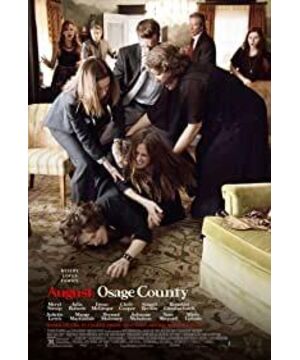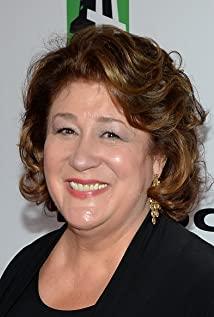The seemingly ruthless and bitter old woman in the film is actually so lonely and helpless, silently suffering from the pain of life. She and her three daughters seem to have a bad relationship, but in reality they are divided and contradictory due to the imbalance between giving and receiving over the years.
Violet and Barbara are the two characters with the most dramatic conflicts. The whole play is like building clues and tentacles around them (in fact, the two big characters add to the cast of this play very much), but this also makes other characters The connection seems too thin. For example, old Charles is a character worthy of digging deeper, but it is correct to not be too prominent in the play. After all, one or two really depressing characters in the whole play are enough.
Some people say that the stage version is better than the movie version. I don't agree too much. It is true that stage plays are more capable of expressing dramatic tension, but the advantage of film lies in its own disadvantages: the compact type of film that separates time and space, some small details seem to be irrelevant, but they can find reference in the back of the film. Therefore, a film that can be separated from classic Hollywood does not need to please the audience and shape all possibilities for the artistry of the film. This is the biggest reason why I always like to watch these kinds of films.
The film feels that it is not hurried but slow but contradictory. The background music is witty and relaxed when the protagonist is suffering. This kind of contradiction can make the audience deeply realize the helplessness of the protagonist at this time, which is a bit like "damn my life!" When you can't make up for your bad life, listen to a piece of country music, drink a whiskey, and dance, so that your mind can be taken away from the raging family gathering for a moment.
One of the biggest highlights of the film is: stories and characters that are similar or even the same as our lives. We will see in Violet the arduous past of the elders, the forbearing marriage, and the discordant mother-daughter relationship; in Barbara we will see the pressure of being an eldest daughter, encountering an affair with her husband during menopause, and having a daughter in a rebellious youth; We will see in Ivy that the career and life are not good enough, silently assume the responsibility of taking care of the two elders, and the sweetheart is the worm in everyone’s eyes, but the helplessness that can’t fight back; we will see in Karen the stubbornness and optimism of not recognizing the old. Doctrine has a strong heart, doesn’t love or even fears the consequences, and comforts oneself in trouble, does it sound nice...too many characters are real around us or even on us, so that we are watching The film always substitutes itself. Naturally, the connection between the audience and the film has become closer.
My family feels like a young version of Osage County. There are also sisters with different personalities. Thinking about how we might encounter things in the film many years later, I can’t help but feel helpless... Dreams and hopes seem to live only young and long. After the university, we will realize that life should be like this. This kind of painful fetters with loved ones cannot easily cut off the feelings between people. After all, It's not cut and dried, black and white, good and bad. It lives where everything lives: somewhere in the middle.
View more about August: Osage County reviews











